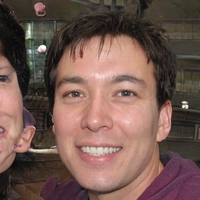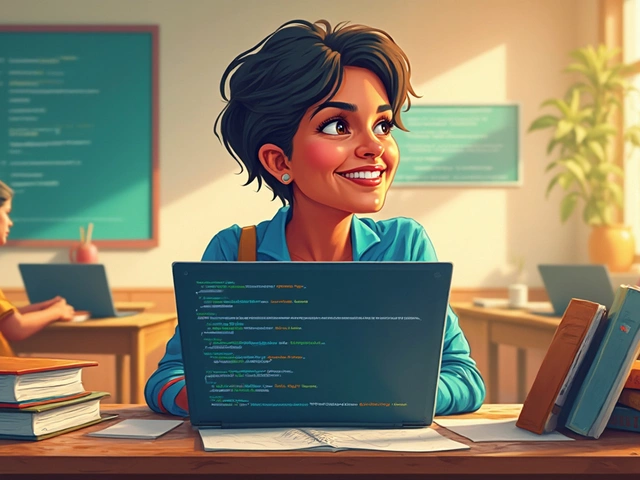So, you're thinking about diving into the world of coding? Awesome choice! But with countless languages out there, it can feel like choosing a needle in a haystack. Whether you're eyeing a tech career or simply want to understand what makes websites tick, picking the right language is a crucial first step.
Let's talk basics. If you're looking for something newbie-friendly, Python is often the go-to. It's like coding's version of training wheels—straightforward syntax and a gentle learning curve. No wonder it's popular with beginners and seasoned programmers looking to try out data science.
On the other hand, if web development sparks your interest, JavaScript is essential. It's the language of the web, making interactive elements on webpages come to life. With just a bit of practice, you'll be dabbling in the creation of dynamic, gooey interfaces and seamless user experiences.
For those leaning towards app development or that mysterious world of enterprise software, Java might be your jam. It's reliable, object-oriented, and while not the easiest nut to crack, it pays off in the long run with its versatility.
- Understanding the Basics
- Popular Programming Languages
- Aligning with Career Goals
- Tips for Your Coding Journey
Understanding the Basics
Embarking on a coding journey is like learning a new language, literally. It's about getting the hang of concepts that are universal across most programming languages. Before choosing which coding language to learn, let's break down a few fundamental ideas every aspiring coder should know.
1. Syntax and Semantics
Every language has its own syntax—rules that define the structure of valid commands. Think of syntax like grammar in a spoken language. For example, in Python, indentation is crucial for defining blocks of code, unlike many other languages that rely on braces. Semantics, meanwhile, deals with what the commands mean or do. Getting comfortable with both is essential.
2. Data Types and Variables
Data types like integers, strings, and booleans are the building blocks of any program. Variables are essentially named storage locations that can hold different data types. Knowing how to declare, assign, and manipulate these are basics you'll use in every line of code.
3. Control Structures
These are the 'decision-making' aspects of coding. They allow the program to choose different paths in execution based on conditions. If-else statements and loops (like for and while) are your best friends here. These structures help make your code dynamic and responsive.
4. Functions and Algorithims
Think of functions as reusable pieces of code designed to perform a specific task. They help keep your code organized and reduce repetition. Meanwhile, algorithms are step-by-step procedures or formulas for solving problems. Think of them as recipes your code follows.
5. Debugging
Every coder, yes, even the pros, encounter bugs or errors in their code. Learning to debug—finding and fixing these problems—is a skill that will save you a lot of headaches down the road. Many coding classes emphasize the importance of patience and persistence in this area.
With these concepts in your toolkit, you're better prepared to decide on a coding language that aligns with your goals and interests. And remember, coding is as much about problem-solving and creativity as it is about writing lines of code!
Popular Programming Languages
When it comes to picking a programming language, it's a bit like choosing a tool from a toolkit—different jobs need different tools. Let's break down a few of the top contenders that are great fits for beginners.
Python
First up, Python. This language is famous for its readability and simplicity. It's used in tons of fields like data science, AI, web development, you name it. One reason it's a favorite for beginners is its straightforward syntax that almost reads like English, making it easier to grasp foundational concepts without getting tangled up in complex code.
JavaScript
If you're aiming for web development, then JavaScript is non-negotiable. Virtually every website out there uses it in some capacity. It's the magic behind interactive features on web pages. Sure, learning HTML and CSS gives you the structure and design, but JavaScript brings those pages to life.
Java
Looking to develop mobile apps or work in large corporate environments? Java is the backbone for Android development and is heavily used in enterprise-scale applications. It's known for its portability across platforms, which is why 'write once, run anywhere' is a thing with Java.
Ruby
Ruby’s claim to fame is its elegant syntax, often compared to a beautiful human language. It's most known for Ruby on Rails, a robust full-stack web framework. While less talked about than it used to be, it’s still a fantastic way to get a grasp of backend systems with a bit of front-end flair.
Swift
For those interested in diving into iOS app development, Swift is the language to learn. It's modern, powerful, yet straightforward, developed by Apple for iOS and macOS apps. Since Apple is constantly pushing the boundaries, knowing Swift opens doors to innovation.
There's no right or wrong answer when choosing which coding language to learn first; it's all about aligning with what you want to build or where you want to work. Keep your goals in mind, and you can't go wrong!
To give you a quick overview, here's how these languages stack up in popularity according to some recent surveys:
| Language | Popularity Rank |
|---|---|
| Python | 1st |
| JavaScript | 2nd |
| Java | 3rd |
| Ruby | 9th |
| Swift | 10th |

Aligning with Career Goals
Choosing the right coding language isn't just a technical decision—it's a career one. The language you start with can steer your path in different directions, so it helps to have your end goal in mind. Let’s break down a few popular career paths and the languages that align with them.
Web Development
If you're drawn to building cool websites or apps, then learning JavaScript is non-negotiable. It's critical for front-end and often used for back-end development. Pair it with HTML and CSS, and you're on your way to becoming a web wizard.
Data Science
Thinking about crunching numbers and extracting insights? Python is your friend here. It's the favorite in data science circles, thanks to libraries like Pandas and NumPy that make data manipulation a breeze. R is another great option if stats and visualizations are your main game.
Game Development
For those who dream of creating the next big game, languages like C# and C++ are worth a look. C# is the key to working with Unity, a leading game engine. C++ offers speed and control, crucial in game design, making it a staple for serious developers.
Mobile App Development
Want to develop the next killer mobile app? Swift and Kotlin are must-knows. Swift is Apple's language for iOS, while Kotlin is Google's preferred choice for Android development. Dive into one depending on which platform captures your interest.
Enterprise Software
If stable, high-performance apps for businesses interest you, Java reigns supreme. It's used widely for big systems and has a long track record in corporate environments. Its versatility and robustness make it a solid pick for predictive job security.
Here's a quick comparison of languages and their typical career paths:
| Language | Common Use | Ideal For |
|---|---|---|
| JavaScript | Web Development | Dynamic websites, interactive content |
| Python | Data Science | Data analysis, machine learning |
| C# | Game Development | 3D/2D games with Unity |
| Swift | Mobile Apps | iOS development |
| Java | Enterprise Software | Corporate, large-scale systems |
So, ask yourself where you see your career heading. Once you align your choice of coding language with your aspirations, you'll set yourself up for both learning success and career satisfaction.
Tips for Your Coding Journey
Starting out in the vast world of programming can be quite a challenge, but don’t worry, you're not alone. Here are some practical tips to keep you on track.
Start Small and Build Up
When you first dip your toes into this coding sea, start with small projects. Fix minor bugs or create simple apps instead of aiming to build a full-fledged software. Gradual learning helps you understand the nuances of a coding language without feeling overwhelmed.
Practice Regularly
Coding isn't something you can master overnight. It's all about practice. Consistent, regular coding will cement what you've learned and make new skills stick. Even 30 minutes a day can make a huge difference!
Utilize Online Resources
The internet is loaded with helpful resources for learning to code. Websites like Codecademy or freeCodeCamp offer interactive tutorials that can enhance your learning process. And don't underestimate the power of forums or communities like Reddit and Stack Overflow—it’s where the coding community hangs out and shares wisdom.
Learn Through Collaboration
Ever heard the saying, ‘two heads are better than one’? Coding with others through hackathons or group projects is a fantastic way to learn. It allows you to see multiple solutions to problems and improve your team-working skills, essential for any programming job.
Understand Your Mistakes
Instead of getting frustrated with errors, treat them as learning opportunities. Debugging is a critical part of coding. Understanding why a particular error occurs helps you avoid similar mistakes in the future and gives you deeper insight into the workings of the programming language.
Track Your Progress
Keep a log of your completed projects, topics covered, and any hurdles you overcame. It will give you a sense of achievement and help you identify areas for improvement. Plus, it adds up to a neat portfolio showcasing your abilities!
Finally, remember that everyone learns at their own pace. It's not a race but a journey. So stay patient, stay curious, and most importantly, have fun with it!



